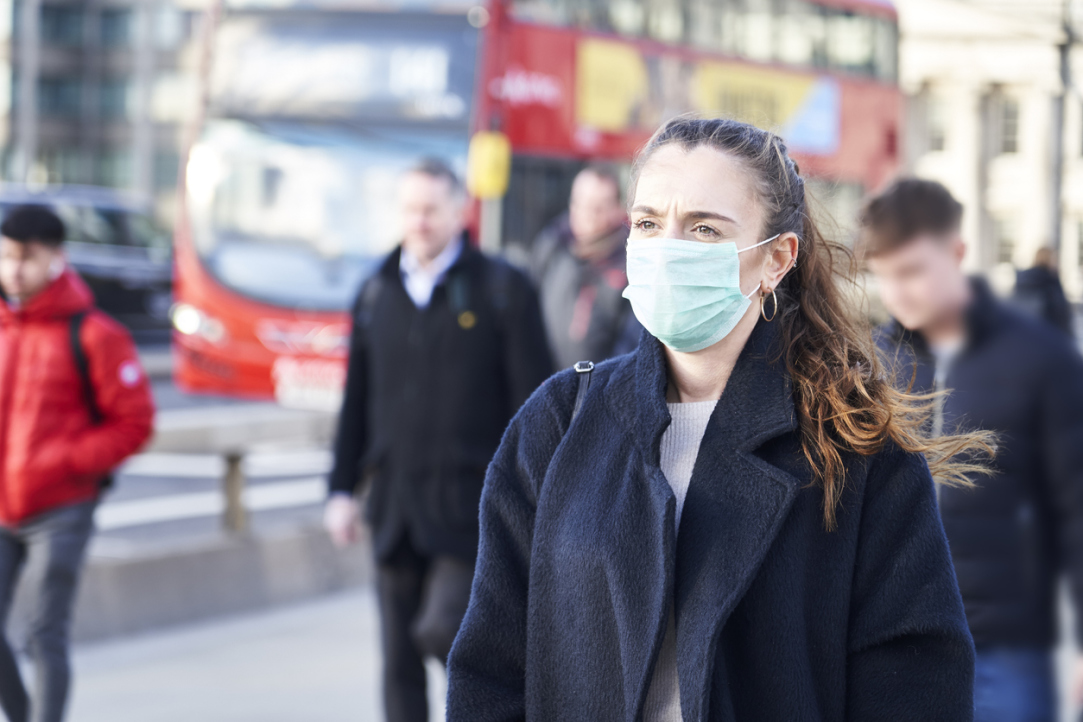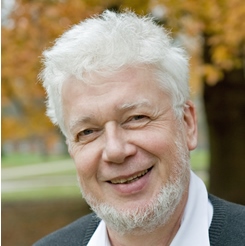‘We Have to Ask the Very Same People Multiple Times to Understand What Changes in Emotions, Attitudes, and Behaviors Really Take Place’

On November 6, Dr. Klaus Boehnke, Deputy Director of the HSE Centre for Sociocultural Research, presented his report entitled ‘Does COVID-19 propel value change: A comparison of Germany and the United Kingdom?’ at the ‘Culture Matters’ research seminar. HSE News Service has talked to Dr. Boehnke about various aspects of the value changes and socio-economic consequences of the pandemic in Europe and Russia.

Dr. Klaus Boehnke
Country Differences
In general, an event like the pandemic can elicit two basic reactions, one that we call a protective shift, the other an emancipative shift. A protective shift would mean that people will be more inclined than before to look after themselves, look after their very own safety, develop an elbow mentality. An emancipative shift means essentially the opposite, people recognize that the pandemic does not come from any particular competitor or enemy, but can affect each and every one of us, thereby fostering more of a humanist and universalist outlook on life than before.
The study I do together with colleagues from Jacobs University Bremen (my German home university), from the University of Edinburgh, the University of Magdeburg, and Leuphana University in Lüneburg (the home of my colleague Christian Welzel, who is affiliated to HSE’s Laboratory for Comparative Social Research) does not yet allow any decision on where people in different contexts will go.
From our comparison of Germany and the UK we do, however, know that people in Britain express more COVID-related anxiety and have a tendency to express more of an elbow mentality than Germans do.
Of course, a protective shift would put social cohesion under strain. If more and more people look primarily after their own safety and ignore the interest of others, then decisive components of social cohesion—as defined in the Bertelsmann Cohesion Radar that my workgroup oversaw—will be in jeopardy. There will be less tightly knit social networks, less trust, less acceptance of diversity, and also less solidarity and helpfulness.
Trying to draw conclusions from these results with regard to Russia is rather speculative. What one can probably say is that people in demanding life contexts will have a tendency towards saving their own lot, so-to-speak, and exhibit a protective shift, whereas people with more resources will lean towards the emancipative shift.
Russia is a huge country and people across the country diverge in the quantity of resources available to them, so that more than in other countries I expect within-country differences in reactions to the pandemic
Blame Shifting or Progress of Humanity?
As we all know, history does not repeat itself, so every situation in that sense is new. We have not had a pandemic in a hundred years. In the middle ages, however, pandemics happened quite frequently.
I think what remains the same is that there are always the two options that I described before, the protective shift and the emancipative shift. The protective shift is accompanied by blame shifting. We are made to believe that the great loss of lives arising from the pandemic must be somebody’s fault, the ‘Chinese’ virus, as ill-meaning politicians around the world call it. This fosters conflict and long-lasting antagonism.
At the same time, pandemics and other catastrophes, have often also led to major progress of humanity, just to mention advances in hygiene that have helped to more or less eradicate typhus.
Research Implications
Turning back to the immediate academic sphere, what is crucial from my point of view is to get empirical data from surveys, interviews, and bservations repeatedly and quickly to document and study which changes in people and in social entities really take place.
Only when we get what sociocultural research calls longitudinal data, can we analyze processes. In everyday language: We have to ask the very same people two, three, four times to understand what changes in emotions, attitudes, and behaviors really take place, and how this changes worldviews and the ways in which communities function.
Klaus Boehnke has been working at HSE since 2017. To his great disappointment, in 2020 all his work at the HSE Centre for Sociocultural Research had to be remote. ‘On different occasions, I gave presentations in virtual academic events, and remotely we worked on academic manuscripts. ‘Regardless of whether co-authored by HSE colleagues or not, all my academic publications are, of course, publications that also emphasize my affiliation to HSE. However, in my view this is not enough. I strongly hope to be able to physically return to Moscow in 2021 soonest. I miss my colleagues and the city.’
Klaus Boehnke
Deputy Director, Centre for Sociocultural Research
See also:
HSE Biologists Explain Mechanism behind Coronavirus Evolution
A team of researchers, including scientists of the HSE Faculty of Biology and Biotechnology, have analysed the evolutionary path of the coronavirus from the Wuhan variant to Omicron. Their findings indicate that many genomic mutations in SARS-CoV-2 are shaped by processes occurring in the intestines and lungs, where the virus acquires the ability to evade the inhibitory effects of microRNA molecules. The study findings have been published in the Journal of Medical Virology.
Russian Researchers Explain Origins of Dangerous Coronavirus Variants
HSE researchers, in collaboration with their colleagues from Skoltech and the Central Research Institute for Epidemiology, have uncovered the mechanisms behind the emergence of new and dangerous coronavirus variants, such as Alpha, Delta, Omicron, and others. They have discovered that the likelihood of a substitution occurring at a specific site of the SARS-CoV-2 genome is dependent on concordant substitutions occurring at other sites. This explains why new and more contagious variants of the virus can emerge unexpectedly and differ significantly from those that were previously circulating. The study’s findings have been published in eLife.
Academics Started Working Even More During the Pandemic
Academics’ work week became even longer during the pandemic. This is true of researchers from different countries, independently of their gender and specialisation, an international research team with HSE University participation found. Their working time during the pandemic was 51 hours compared to the usual 40. The increased number of working hours per week seems to have become part of the new academic norm. The results of the study were published in the Plos One journal.
HSE Biologists Prepare Strategy for Universal COVID Test
Russian researchers have developed a strategy to create a cheap and rapid COVID-19 test based on isothermal amplification. According to their publication in Applied Biochemistry and Microbiology, use of this strategy will make it possible to create universal test systems for any of the COVID-19 variants.
The Pandemic Has Boosted Digitalization and Deglobalization: What Does It Mean for Russia?
The COVID-19 pandemic has caused global economic, social and technological transformations. Experts from HSE University and other education and research institutions from various countries discussed these transformations and other relevant trends for the future at the 3rd International Conference ‘East and West at the Stage of New Transformations: The Post-Covid Changes’.
People’s Values Affect Their Attitudes to COVID-19 Restrictions
HSE social and political analysts have established which value models and circumstances promote support for restrictive government policies aimed at combatting the coronavirus pandemic. The research is published in Plos One.
Model of Predator-Prey Relationship Helps Predict Spread of COVID-19
Researchers from the HSE Faculty of Economic Sciences have proposed a mathematical model that describes the course of the COVID-19 pandemic, taking into account the restrictions applied in different countries. The model will help governments make reasonable and timely decisions on introducing or lifting restrictions. The paper was published in Eurasian Economic Review.
HSE University Classes to Be Held On Site for All Students
Classes in the new academic year will take place on site for students of all HSE University campuses. Existing COVID safety precautions will remain in effect.
Russian Scientists Investigate the Immune Response to SARS-CoV-2 Variants
HSE University researchers assessed the effectiveness of the T-cell immune response to 11 variants of SARS-CoV-2. Their findings have been published in Nucleic Acids Research.
First-year Students Will Be Able to Get COVID Shots at HSE University
The new regulations ‘On the Organization of Studies for the 2021/2022 Academic Year’ feature in detail what will change for first-year students in the new academic year. HSE University will be organizing a vaccination drive in September for students aged 18 and over who are unvaccinated. Younger students will be eligible for vaccination once they turn 18.


